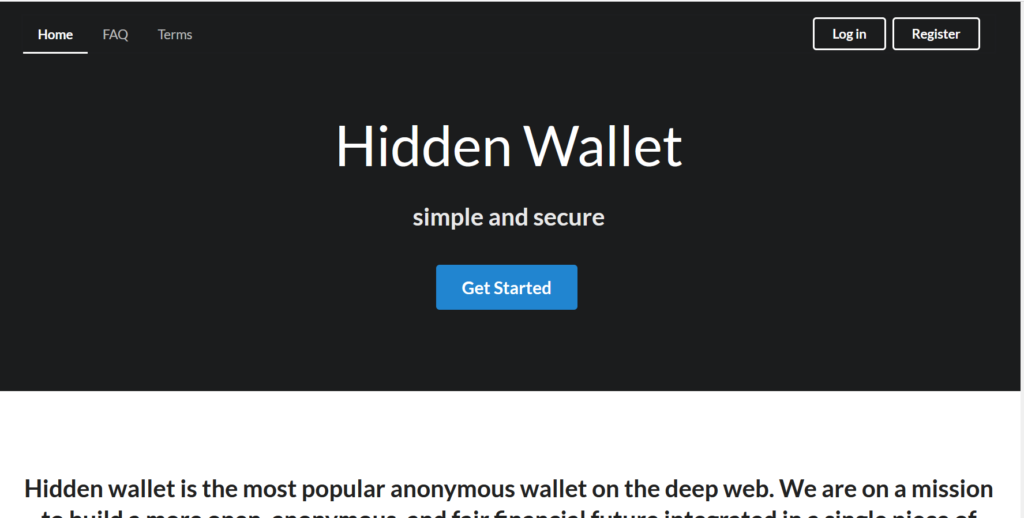Table of Contents
ToggleHidden Wallet – TOR Scam Report (1)
Onion Link: http://d46a7ehxj6d6f2cf4hi3b424uzywno24c7qtnvdvwsah5qpogewoeqid.onion
Scam Report Date: 2024/06/12
Client Scam Report Breakdown
Original Report Summary:
Hidden Wallet presents itself as a highly secure and anonymous Bitcoin wallet hosted on the Tor network. It claims to offer users complete privacy by bypassing AML (Anti-Money Laundering) and KYC (Know Your Customer) policies, which are typically enforced by traditional Bitcoin exchanges. By doing so, it suggests that users are shielded from government scrutiny and that their identities remain hidden. The wallet further markets its services by emphasizing a feature called Bitcoin “mixing” or “laundering,” which supposedly obfuscates the traceability of transactions to ensure total anonymity. According to the promotional material, Hidden Wallet offers users a free mixing service, charging only a small Bitcoin network fee of 0.001 BTC. However, upon closer analysis of scam reports, this wallet appears to be a fraudulent operation.
Based on the scam report provided, the Hidden Wallet platform fails to function as a legitimate service. Specifically, the user reported that when attempting to make a payment from the wallet, an error page consistently appears, preventing any transactions from being processed. This renders the wallet useless, as the primary function of sending and receiving Bitcoin is compromised. Additionally, the scam report highlights that the contact email address provided by Hidden Wallet is non-functional, further raising concerns about the legitimacy of the platform. Without working customer support or any resolution to transaction issues, users are left with no recourse, trapped with Bitcoin that they cannot access or use. This aligns with classic characteristics of a scam, where the service appears operational but ultimately fails to deliver its core promises.
To understand this scam more thoroughly, it’s essential to break down some key terms mentioned. “Bitcoin mixing” or “Bitcoin laundering” refers to a process where Bitcoin transactions are obfuscated by shuffling or combining funds from various sources to make the transaction trails harder to trace. While this is often marketed as a way to enhance privacy, it’s frequently associated with illicit activities aimed at preventing law enforcement or regulatory agencies from identifying the origin of Bitcoin funds. AML and KYC policies are regulatory frameworks designed to prevent money laundering and verify users’ identities to ensure that funds are not derived from criminal activities. Hidden Wallet’s claim that they bypass these policies makes them inherently suspicious, as legitimate services would comply with such regulations to protect both the platform and its users from illegal activity. By operating on the Tor network, Hidden Wallet adds another layer of perceived anonymity, but this also distances the platform from any oversight, creating fertile ground for scams.






